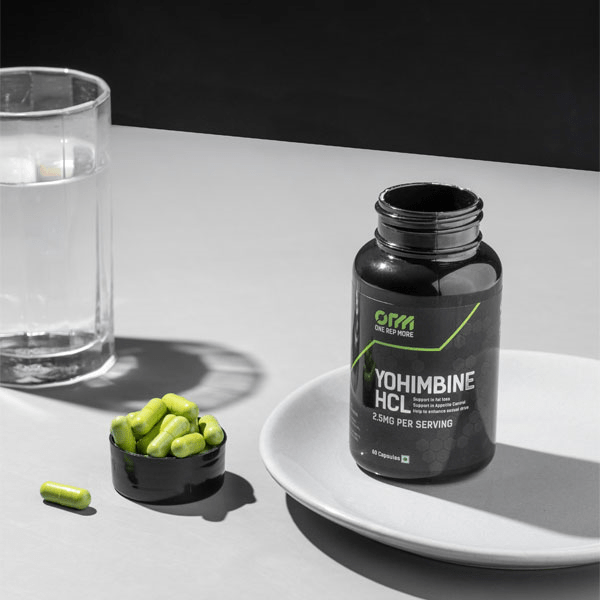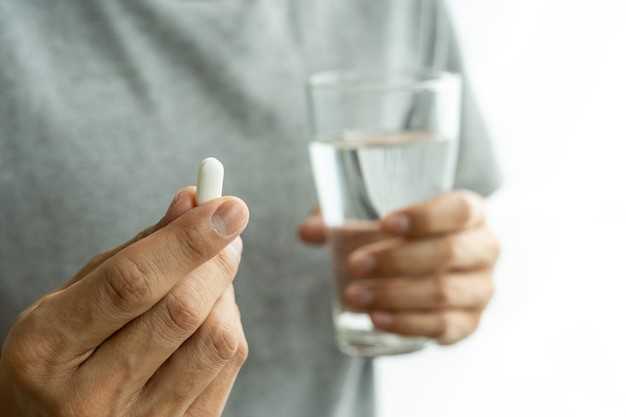Yohimbe is the name of an evergreen tree found in parts of central and western Africa. The bark of yohimbe contains a chemical called yohimbine, which is used to make medicine. Yohimbine Hydrochloride is a form of yohimbine which is used as a supplement or prescribed as a medicine.

Yohimbine shows a comparatively rapid absorption with a half-life of 7–11 min when consumed orally. The plasma levels reach their peak after 45–60 min of ingestion.
Dried bark from the twigs and stalk of the yohimbe tree are used in their entirety, cut up or ground into powder to use as a drug. A variety of yohimbe bark extracts are offered as mono-preparations or combined with other substances in liquid, powder, capsule or tablet form. The quantities of yohimbine in these products vary. Its therapeutic use to treat sexual dysfunction, as an aphrodisiac and for fatigue and exhaustion. But most of the studies have failed to prove any of these effects.
Yohimbine hydrochloride is a Food and Drug Administration (FDA) approved prescription drug for the treatment of impotence.
Yohimbine extracts are used to treat impotence, a disorder that occurs in 1.2 to 2 percent of the male population. Yohimbine has also been used extensively in veterinary medicine for treatment of impotent breeding stallions.
In a 1987 study, 48 subjects with impotence took part in a 10 week trial of yohimbine (18mg/day) for restoring erectile function. Overall 46% of those who received yohimbine reported a positive response to the drug. Thus, Yohimbine was assumed to be a safe treatment for impotence that seems to be as effective as sex and marital therapy for restoring satisfactory sexual functioning.
A 1997 study, tested the effect of yohimbine hydrochloride on 86 patients with erectile dysfunction. Yohimbine was administered orally in a dosage of 30mg/day (two 5mg tablets three times daily) for eight weeks. Yohimbine was found significantly more effective than placebo in terms of response rate. Yohimbine was well-tolerated: Only 7% of patients rated tolerability fair or poor, and most adverse experiences were mild. There was no serious adverse event.
Acc. to a 2000 study, Yohimbine blocks alpha-1 and alpha-2 adrenoceptors, increasing adrenaline and dopamine and decreasing serotonin levels. Blocking these receptors also increases blood pressure, releases insulin, and decreases blood sugar levels.
Acc. to examine.com, “Yohimbine works by increasing adrenaline levels in the body, as well as inhibiting a regulatory process in fat cells, which normally suppresses fat burning.”
Just like ephedra, yohimbine also has side effects like excitation, insomnia, fear, hypertension, tachycardia, nausea and vomiting. This is because yohimbine is also a Central Nervous system stimulant, and it leads to elevation in blood pressure and heart rate, increased motor activity, irritability and tremors.

Acc. to a 2009 study, yohimbine is currently approved in the United States for erectile dysfunction and has undergone resurgence in street use as an aphrodisiac and mild hallucinogen. In recent years yohimbine use has become common in body-building communities for its presumed lipolytic and sympathomimetic effects.
A 2011 study, suggested that, “In excess doses, it may typically cause agitation, anxiety, hypertension, and tachycardia. Although tolerated generally well in low doses, the potential for dose-dependent toxicity should be recognized.”
Acc. to a 2000 study, “Yohimbine has been used for over a century in the treatment of erectile dysfunction. In-depth, systematic studies in animals have shown that the drug has a remarkable positive effect on sexual performance. Meta-analyses of the few controlled, randomized human studies have consistently shown an advantage of yohimbine over placebo. Despite such a long history and encouraging activity, the drug has not yet been subjected to rigorous human clinical trials.”
A 2006 study, determined the effects of yohimbine supplementation on body composition and exercise performance in professional soccer players. The athletes (20 top-level male soccer players) were allocated to two assigned trials. Subjects in the yohimbine group orally ingested tablets that contains yohimbine at a dose of 20mg/day in two equal doses for 21 days. Subjects in the placebo group ingested an equal number of identical-looking pills.
There were no statistically significant changes in body mass and muscle mass within or between trials after the supplementation protocol. Percentage of body fat significantly decreased in the yohimbine group after the supplementation protocol. Furthermore, fat mass was significantly lower in the yohimbine versus placebo trial at post-supplementation assessment. There were no changes in exercise performance indicators (bench and leg press, vertical jump, dribble and power test results, shuttle run) within or between trials. No subject reported any side effects from yohimbine.
A 1997 study, assessed the effect of 30mg/day of yohimbine on a group of men with erectile problems and a sexually functional comparison group. Results indicated no effect of yohimbine on most aspects of sexual response in sexually functional men. Mixed effects were found on measures of sexual function in men erectile dysfunction, with 3 of 11 men reporting strong positive effects. Under yohimbine, frequency of sexual activities increased.
A 2002 study, compared the efficacy and safety of the combination of 6g of L-arginine glutamate and 6mg of yohimbine hydrochloride with that of 6mg of yohimbine hydrochloride alone and that of placebo alone, for the treatment of erectile dysfunction, on 45 men.
This study shows that the on-demand oral administration of the L-arginine 6g and 6mg yohimbine combination is effective in improving erectile function in patients with mild to moderate ED.

Acc. to a 2013 report, yohimbine is the only herb listed for sexual function the Physician’s Desk Reference. Yohimbine has earned the nickname “herbal viagra.”
A 2021 meta-analysis study, reviewed the efficacy of Yohimbine as a pharmacological treatment for ED. The study found that, sole administration of Yohimbine and its combination with other supplements can improve the erectile and sexual functions of ED patients. However, sole Yohimbine administration did not significantly improve sexual function. To improve sexual function, it must be given as an adjunct to other treatments.
Acc. to a 2002 study, administering yohimbine prior to exercise, boosts lipolysis and serum free fatty acid levels both during and following exercise. A combination of caffeine and yohimbine can be a potent one to explore in this sense.
Acc. to examine.com, “dosages of 0.2mg/kg bodyweight have been successfully used to increase fat burning without significant implications on cardiovascular parameters like heart rate and blood pressure. This results in a dosage of:
- 14 mg for a 150lb person
- 18 mg for a 200lb person
- 22 mg for a 250lb person
Supplementation is most effective between meals or during short term fasting.”
As a conclusion, there are primarily two areas for which yohimbine use is considered useful, i.e. sexual dysfunction and fat burn. For fat burn, its similar to ephedra in terms of its side effects, which is another substance proven to burn fat.
Despite well-tolerated effects in both young and elderly populations, scientific reports indicate some dose related toxicity issues of yohimbine. Generally, yohimbine displays specific side effects like nervousness, insomnia, anxiety, increased urinary frequency, dizziness, tremors, headache, hypo/hypertension, bronchospasm, and lupus-like syndrome. In rare cases, patients have gastrointestinal symptoms such as nausea, vomiting, lack of appetite, and diarrhoea.



